
BULLETIN OF THE EUROPEAN ASSOCIATION OF FISH PATHOLOGISTS
Scope & Guideline
Exploring Innovations in Fish Disease Management.
Introduction
Aims and Scopes
- Fish Disease Pathology:
Research on the mechanisms, diagnosis, and treatment of diseases affecting fish species, including both viral and bacterial pathogens. - Aquaculture Health Management:
Studies aimed at improving disease management strategies in aquaculture systems to enhance fish health and welfare. - Ecological Impact of Pathogens:
Investigations into how pathogens affect fish populations in natural ecosystems, including studies on reservoirs and transmission dynamics. - Immunology and Disease Resistance:
Exploration of immune responses in fish and the development of disease resistance, including the use of immunostimulants and genetic selection. - Pharmacology and Therapeutics:
Research focused on the use of pharmaceuticals and alternative treatments to manage fish diseases and improve health outcomes.
Trending and Emerging
- Molecular and Genetic Characterization:
A growing trend towards the use of molecular techniques for the identification and characterization of pathogens, allowing for more precise diagnostics and understanding of disease mechanisms. - Immunostimulants and Disease Prevention:
An increase in research exploring the use of immunostimulants and natural alternatives to promote disease resistance in farmed fish, highlighting a shift towards sustainable aquaculture practices. - Multi-Pathogen Interactions:
Emerging studies focusing on coinfections and the interactions between multiple pathogens, which are critical for understanding disease dynamics in both aquaculture and wild populations. - Public Health and One Health Approaches:
A rising interest in the intersection of fish health and public health, particularly in the context of zoonotic diseases and the implications for human health. - Environmental and Climate Impacts on Fish Health:
An emerging focus on how climate change and environmental factors influence fish health and the prevalence of diseases, reflecting broader ecological concerns.
Declining or Waning
- Environmental Pathology:
Research specifically addressing the impacts of environmental changes on fish health has decreased, as the focus shifts more towards direct disease management and treatment. - Historical Disease Studies:
Papers focusing on historical data or retrospective analyses of disease outbreaks have become less common, possibly due to a shift towards real-time research and immediate applications. - Non-Aquaculture Fish Health Studies:
Research on fish diseases in non-aquaculture settings, such as wild fish populations not directly linked to aquaculture management, has waned, indicating a more concentrated focus on economically relevant species.
Similar Journals

FISH PATHOLOGY
Connecting researchers to combat fish diseases effectively.FISH PATHOLOGY is a vital journal dedicated to the field of aquatic animal health, published by the Japan Society of Fish Pathology. With a strong publication history dating back to 1967, this interdisciplinary journal aims to promote high-quality research focusing on the pathologies affecting fish and other aquatic organisms. Despite its category quartiles ranking of Q3 in both Animal Science and Zoology and Aquatic Science, the journal maintains a growing presence within the scientific community, holding a respectable position in Scopus rankings. Researchers and professionals looking for deep insights into fish health management and disease pathology will find FISH PATHOLOGY to be an invaluable resource for advancing knowledge and fostering collaboration in this essential area of study. Although the journal does not currently offer open access, its comprehensive analyses and findings are crucial for both academic and practical applications in fisheries and aquaculture worldwide.
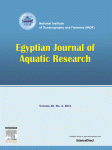
Egyptian Journal of Aquatic Research
Unveiling innovative research in water science.Welcome to the Egyptian Journal of Aquatic Research, a premier peer-reviewed academic journal published by ELSEVIER, dedicated to advancing the field of aquatic sciences. With a robust impact factor and recognition as a Q1 journal in key categories such as Aquatic Science and Ecology, this open access journal has established itself as a vital platform for disseminating high-quality research since its inception in 2012. The journal aims to provide comprehensive coverage of topics including ecology, evolutionary biology, and water science, making it a crucial resource for researchers, professionals, and students engaged in these dynamic fields. With Scopus rankings placing it in the top echelons of various categories, the Egyptian Journal of Aquatic Research fosters innovation, collaboration, and knowledge dissemination on a global scale, making it an indispensable asset for anyone invested in understanding and preserving aquatic systems.
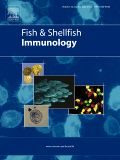
FISH & SHELLFISH IMMUNOLOGY
Advancing Knowledge in Fish and Shellfish Defense MechanismsFISH & SHELLFISH IMMUNOLOGY is a premier journal dedicated to advancing the understanding of immune responses in fish and shellfish, published by Academic Press Ltd - Elsevier Science Ltd. Since its inception in 1991, this journal has played a crucial role in disseminating cutting-edge research that intersects aquatic science, immunology, and environmental chemistry. With an impressive impact factor reflected by its 2023 rankings, it holds a Q1 quartile in Aquatic Science and Immunology, indicating its significant prestige and influence within the scientific community. The journal not only serves as a vital resource for researchers and professionals in the field but also reaches a broader audience interested in the ecological and health implications of aquatic immunology. Although it follows a subscription model, its extensive reach and high visibility within databases ensure that groundbreaking research and reviews are accessible to those interested in advancing knowledge in these interdisciplinary areas. With ongoing convergence towards 2024 and beyond, FISH & SHELLFISH IMMUNOLOGY remains a central platform for innovative studies that continue to shape the future of aquaculture and environmental sustainability.
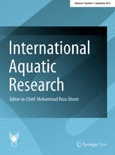
International Aquatic Research
Advancing aquatic knowledge for a sustainable future.International Aquatic Research, published by the Islamic Azad University, Tonekabon Branch, is a vital open-access journal dedicated to advancing the field of aquatic sciences since its inception in 2009. With an ISSN of 2008-4935 and an E-ISSN of 2008-6970, the journal plays a significant role in disseminating high-quality research findings from Iran and around the globe. It covers a broad range of topics in aquatic biology, fisheries science, and marine ecology, making it a valuable resource for researchers, professionals, and students alike. As of 2023, it ranks in the third quartile (Q3) of the aquatic science category with a Scopus rank of #138 out of 247 in Agricultural and Biological Sciences, reflecting its growing influence in the field. With a commitment to promoting scientific knowledge and fostering collaboration among aquatic research communities, International Aquatic Research is positioned as an essential platform for those dedicated to understanding and conserving marine and freshwater environments.
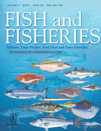
FISH AND FISHERIES
Navigating the complexities of fish and fisheries science.FISH AND FISHERIES is a premier academic journal published by Wiley, dedicated to advancing knowledge in the fields of aquatic science, ecology, and oceanography. With an impressive impact reflected in its 2023 categorization in the Q1 quartile across multiple disciplines—including Aquatic Science and Management, Monitoring, Policy and Law—it serves as an essential resource for researchers, professionals, and students alike. This journal includes rigorous, peer-reviewed articles that address the multifaceted aspects of fish biology, conservation, and sustainable fisheries management. The journal's Scopus rankings further validate its significance, with top positions in Earth and Planetary Sciences, and its commitment to fostering scientific dialogue in an era where the oceans and aquatic ecosystems face unprecedented challenges. Despite not being an Open Access journal, FISH AND FISHERIES remains a vital platform for innovative research that informs policy and drives stewardship of fish populations and their habitats.

ICHTHYOLOGICAL RESEARCH
Pioneering studies for a sustainable aquatic future.Ichthyological Research is a prominent journal in the field of ichthyology, focusing on the biology, ecology, and conservation of fish species and their habitats. Published by Springer Japan KK, this journal has been a significant contributor to aquatic research since its inception in 1996 and will continue to disseminate cutting-edge findings through 2024. With an Impact Factor that places it within Q2 of the Ecology, Evolution, Behavior, and Systematics category, it ranks #318 out of 721 in Scopus, situating it in the 55th percentile of its field. This journal serves as a valuable resource for researchers, professionals, and students, offering open access to vital studies that drive forward our understanding of fish ecology and biodiversity. Located in Tokyo, Japan, Ichthyological Research aims to bridge gaps between theoretical research and practical application, emphasizing the conservation of aquatic ecosystems.

ISRAELI JOURNAL OF AQUACULTURE-BAMIDGEH
Connecting researchers and practitioners in the world of aquaculture.Welcome to the Israeli Journal of Aquaculture-Bamidgeh, published by AquacultureHub Inc, a pivotal platform dedicated to advancing the field of aquaculture studies since its inception in 1988. With a focus on innovative research and practical applications within the realms of Agronomy and Aquatic Sciences, this journal has established a reputation for disseminating high-quality findings that contribute to sustainable practices in aquatic farming. The journal, although classified in the Q3 and Q4 quartiles for its respective categories, offers valuable insights for researchers and practitioners alike, allowing them to stay abreast of developments in aquaculture challenges and solutions. While it's currently not an Open Access journal, the Israeli Journal of Aquaculture-Bamidgeh is committed to providing a thorough avenue for scholarly exchange and fostering collaborations across the global aquaculture community. Explore impactful studies and the latest trends to enhance your knowledge and research in this vital sector.

MARINE BIOTECHNOLOGY
Navigating the Intersection of Sea and ScienceMarine Biotechnology is a premier journal published by Springer, specializing in the interdisciplinary research at the intersection of marine biology and biotechnology. With an ISSN of 1436-2228 and a robust e-ISSN of 1436-2236, this journal has been a cornerstone for scholars and practitioners since its inception in 1999, and is positioned to continue shaping the field through 2024. Recognized for its contributions in Aquatic Science and Biotechnology, it currently holds a Q2 ranking in both categories for 2023, highlighting its relevance and impact within the global scientific community. With a Scopus rank of 64/247 in Aquatic Science and 149/311 in Biotechnology, Marine Biotechnology offers a vital platform for disseminating cutting-edge research that encompasses environmental sustainability, pharmaceutical applications, and bioinformatics. The journal promotes open access to its valuable content, ensuring that research is readily available to a wide audience. By bringing together leading researchers and fostering collaborations, Marine Biotechnology stands as an essential resource for those committed to advancing our understanding of marine resources and their applications in biotechnology.
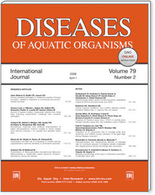
DISEASES OF AQUATIC ORGANISMS
Connecting Research and Management for Aquatic OrganismsDiseases of Aquatic Organisms, published by Inter-Research in Germany, is a prominent academic journal with a focus on the study and management of diseases affecting aquatic organisms, including fish, mollusks, and corals. Since its inception in 1990, this journal has been a vital resource for researchers and professionals in the fields of aquatic science and ecology, evidenced by its Q2 ranking in both categories for 2023. With an ISSN of 0177-5103 and E-ISSN 1616-1580, it offers valuable insights and advancements in the understanding of aquatic health issues and their ecological implications. Though not an open-access journal, it maintains rigorous academic standards and fosters an international dialogue on emerging pathogens and their management, contributing significantly to the body of knowledge that informs sustainable practices in aquatic environments. As the field continues to evolve, Diseases of Aquatic Organisms remains a cornerstone for those dedicated to the preservation and study of aquatic biodiversity and ecosystem health.

MARINE AND FRESHWATER RESEARCH
Bridging science and environmental stewardship.Marine and Freshwater Research is a prestigious journal published by CSIRO PUBLISHING that serves as a key platform for the dissemination of cutting-edge research in the fields of Aquatic Science, Ecology, and Oceanography. With an impactful presence since its inception in 1948, the journal provides critical insights into the dynamics of freshwater and marine ecosystems, promoting interdisciplinary approaches that contribute to our understanding of biodiversity and sustainability. Currently ranked in the Q2 category across major scientific domains, including Ecology and Aquatic Science, it enjoys a robust academic reputation supported by impressive Scopus rankings, such as Rank #66/247 in Aquatic Science and Rank #44/145 in Oceanography, reflecting its high citation impact and relevance. While offering a subscription-based access model, the journal remains dedicated to fostering dialogue and innovation within the scientific community, aiming to bridge the gap between research findings and practical applications in environmental management. Located in Australia, Marine and Freshwater Research is an essential resource for researchers, professionals, and students dedicated to exploring the complexities of aquatic ecosystems and advocating for their preservation.